Sabi Sabi safari lodge review: the past, present and future of South African luxury
Sabi Sabi Private Game Reserve’s philosophy of ‘yesterday, today and tomorrow’ underpins its magnificent lodges
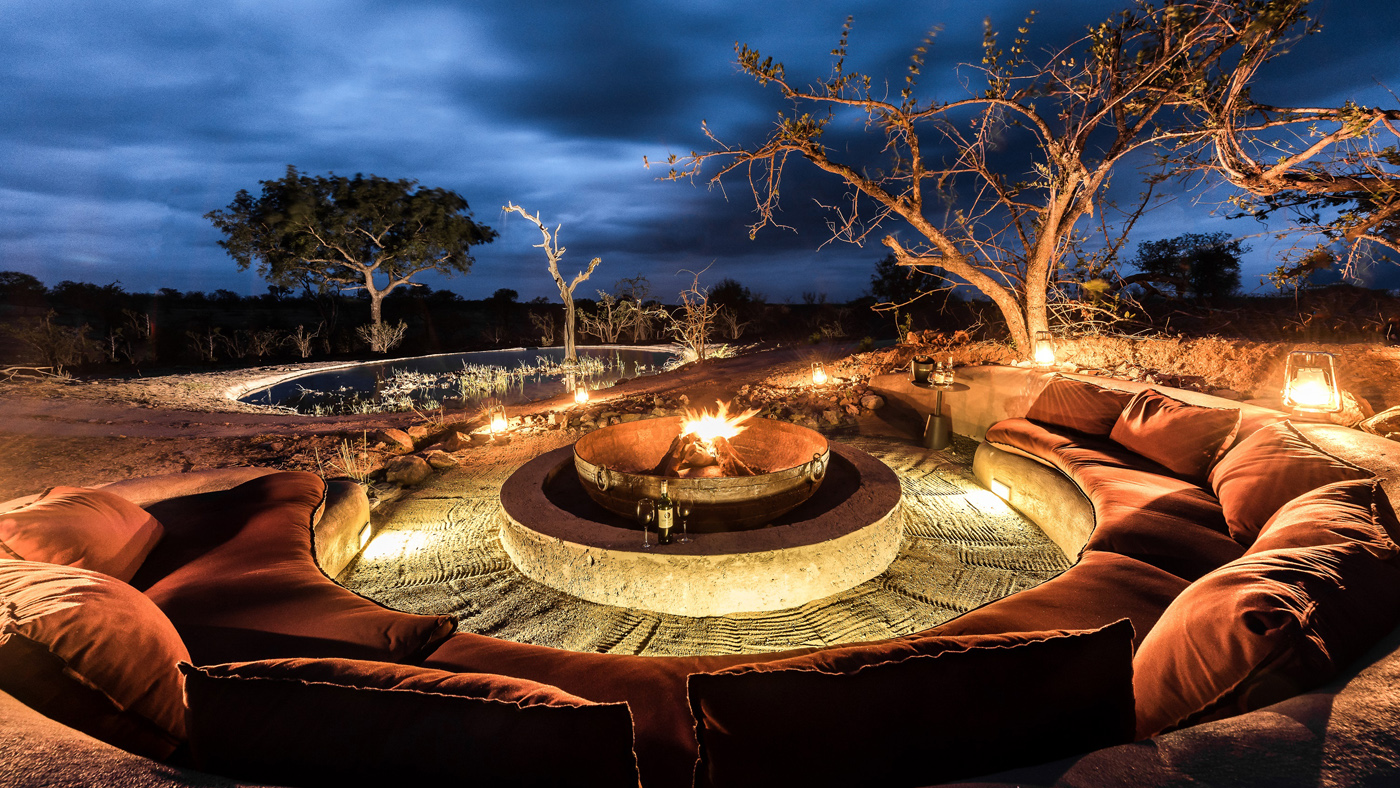
A free daily email with the biggest news stories of the day – and the best features from TheWeek.com
You are now subscribed
Your newsletter sign-up was successful
In the Tsonga dialect, Sabi, derived from the word “tsave”, means “fear” or “danger”, and the river that cuts through the Sabi Sabi game reserve lives up to that name.
Approaching the riverbank, our ranger switches off the engine of our 4x4, and we watch in silence as a pod of hippos emerge from the long reeds and stroll, oblivious to our presence, along the opposite bank.
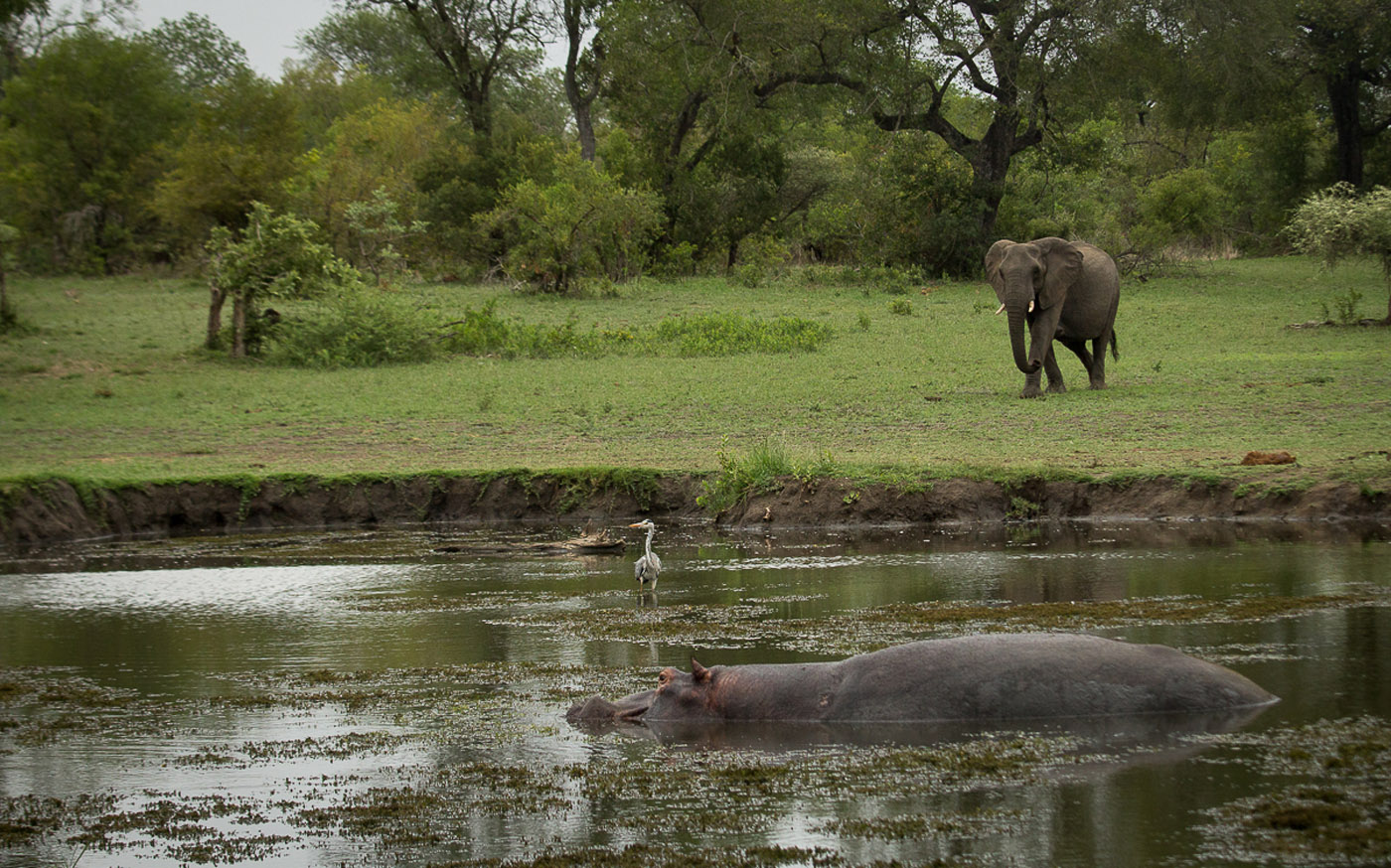
It is hard to reconcile these creatures’ waddling, almost comical appearance with the statistics on how many people they kill each year. By far the most dangerous large land animal in Africa, hippos are extremely aggressive and territorial, killing around 2,900 people a year - most of whom die after accidentally getting between the hippos and the river from which they have emerged. Today, though, the pod seem content to wallow in the shallow waters, with a bit of yawning and light bellowing, before they, and we, move on in search of breakfast. The “tsave” dispelled, we are left in a state of near euphoria about our near sighting.
The Week
Escape your echo chamber. Get the facts behind the news, plus analysis from multiple perspectives.

Sign up for The Week's Free Newsletters
From our morning news briefing to a weekly Good News Newsletter, get the best of The Week delivered directly to your inbox.
From our morning news briefing to a weekly Good News Newsletter, get the best of The Week delivered directly to your inbox.
Experiences like this are commonplace during a stay at Sabi Sabi, a private game reserve featuring four stunning high-end lodges – and a gateway to the area’s numerous natural wonders.
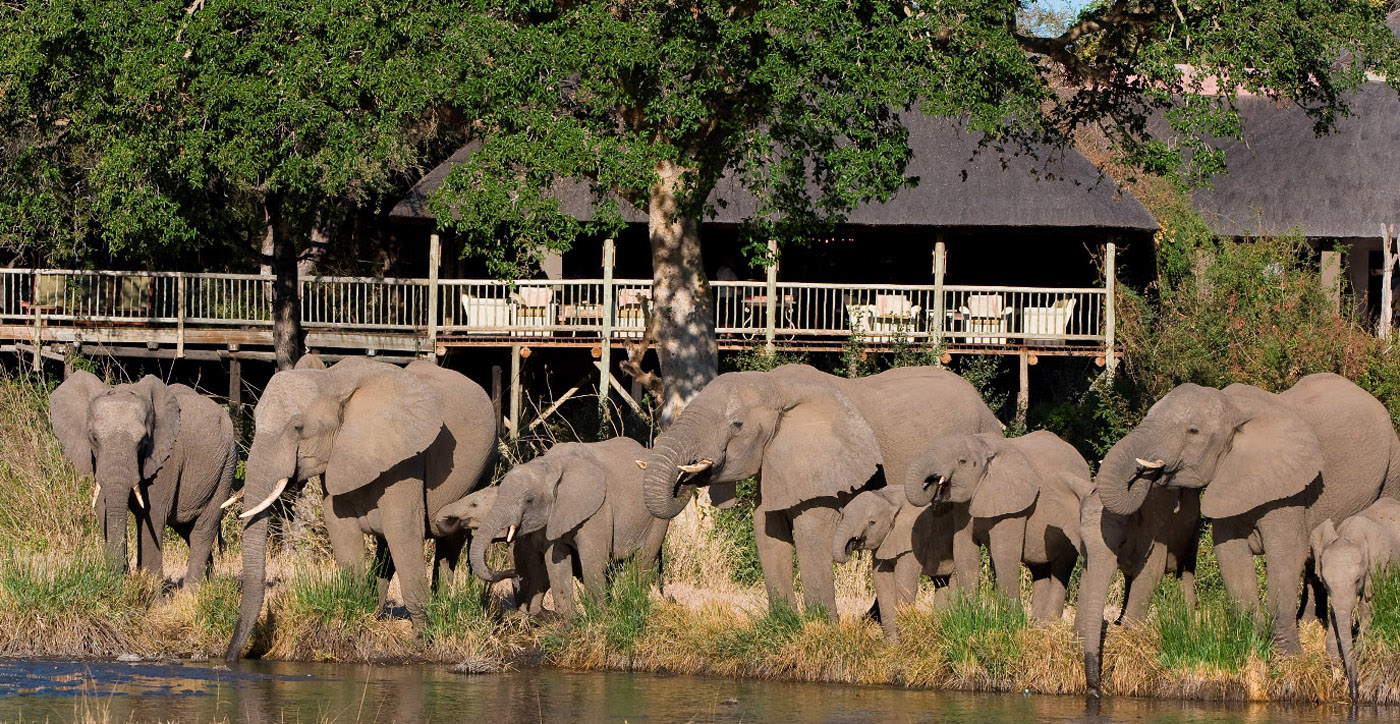
From the moment you arrive, usually by light plane transfer from Johannesburg, you are swept up in Sabi Sabi’s unique brand of hospitality. On The Week Portfolio’s recent visit, we stepped off our plane and were directed straight to an apparently unprepossessing shack on the side of the airstrip. Once inside, however, the magic of Sabi Sabi becomes apparent as you enter a haven filled with beautifully selected art, traditional objects, a drinks cabinet, and loos to freshen up in before the drive to the camp proper. The perfect arrival.
A day in the life at Sabi Sabi
There are no fences between the Sabi Sands Reserve, in which Sabi Sabi sits, and neighbouring Kruger National Park, meaning big game is able to move freely through the area, often following migration routes trodden for thousands of years prior to the establishment of human-made borders, land ownership and farming. As a result, you may not see every animal on your checklist, as you might expect from fenced game reserves, but it makes the sightings you do encounter all the more valuable.
A free daily email with the biggest news stories of the day – and the best features from TheWeek.com
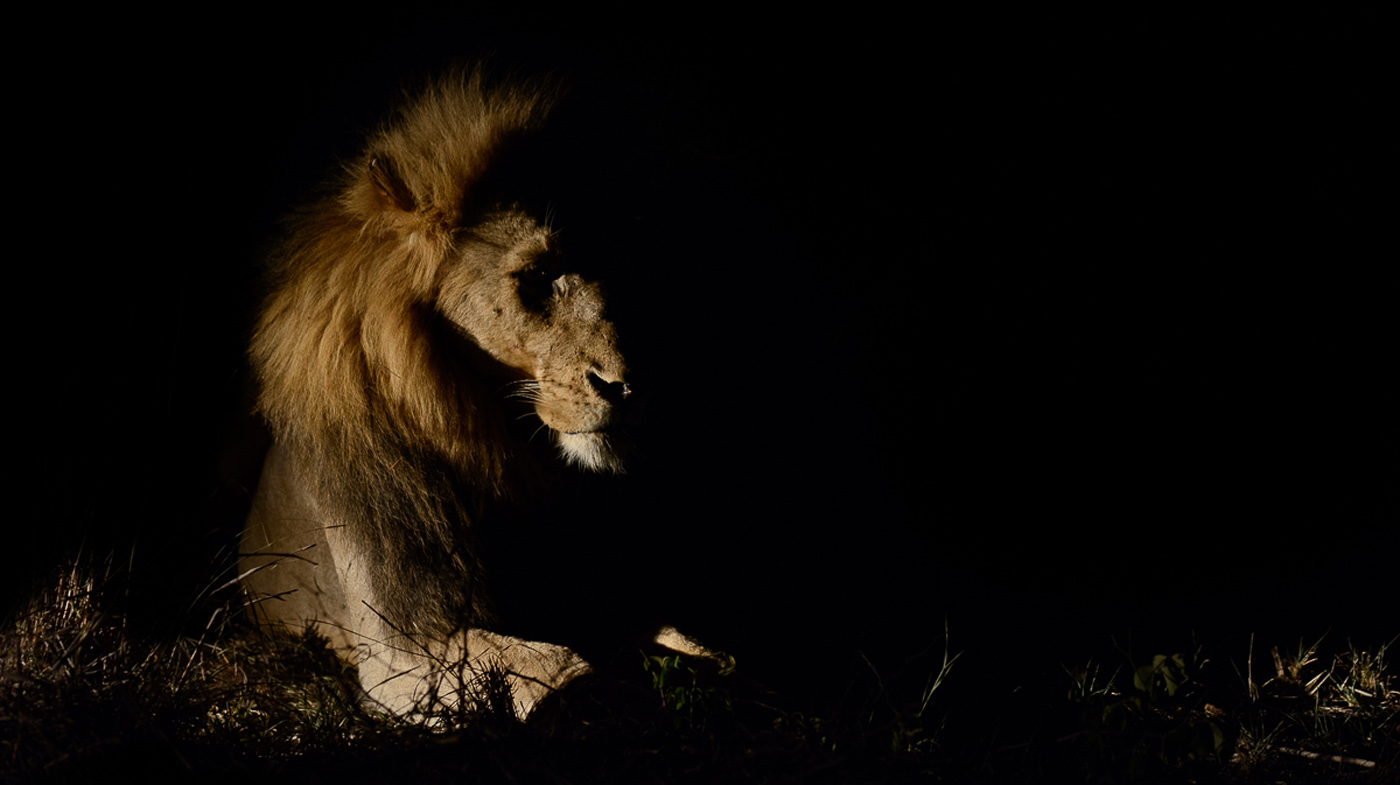
The reserve is home not only to the Big Five – elephant, rhino, buffalo, lion and leopard – but also wild dogs and cheetahs, and a supporting cast that includes warthogs, bush babies, aardvarks and even civets. We were excited to encounter a lone civet late at night, sleeping quietly by the side of a cliff. The curious feline looks like a cross between a jackal, leopard, domestic cat and panda. Encounters like this are what make every game drive a special experience.
Of course, there is more to any safari than just four-legged animals – the park is also home to more than 350 bird species, making it a birdwatcher’s delight. Martial eagles, lappet-faced vultures and kori bustards swoop overhead as you make your way around the reserve, joined by rarer specimens such as the bat hawk and Diedrick’s cuckoo. My favourite though, is the black-bellied bustard, commonly known as a Champagne bird, whose call sounds like the popping of a bottle of bubbly.
In between the morning and evening game drives, the rest of the day is yours to spend as you please, and where you spend your downtime will depend on the kind of South Africa you hope to experience. Sabi Sabi’s theme of “yesterday, today and tomorrow” points to three very distinct experiences for travellers.
Yesterday
South Africa’s history is, unquestionably, complex. Hailed as the birthplace of humanity some 100,000 years ago, its more recent record is generally divided into five distinct political periods: the pre-colonial era, the colonial era, the post-colonial and apartheid eras, and the post-apartheid era.
Each is characterised by conflict, dispossession, repossession, and other defeats and triumphs of various kinds. The country’s recent climb out of the racial segregation that so dominated South Africa from the late 1940s to the early 1990s has left deep scars, and there is still more healing to be done. But the tourism industry – at its most honest – has found ways to celebrate South Africa’s past, without attempting to airbrush it.
Nevertheless, historical aesthetics of architecture, interiors and service can be an uncomfortable experience for visitors, if mishandled. Too many high-end safari lodges get this wrong, with unbanished ghosts emerging alongside a faint whiff of the sins of colonialism that belong firmly in the past.
Sabi Sabi’s take on the past is, blessedly, a very different affair. Its Selati Camp, which has been recently refurbished, follows a historical railway theme that projects back to the 1870s, when gold was discovered high in the Drakensberg escarpment, just to the west of the area. To transport the new riches, the then Transvaal Republic commissioned a railway line connecting the interior to Delagoa Bay, in Mozambique – a line that ran more or less directly through where this camp now stands.
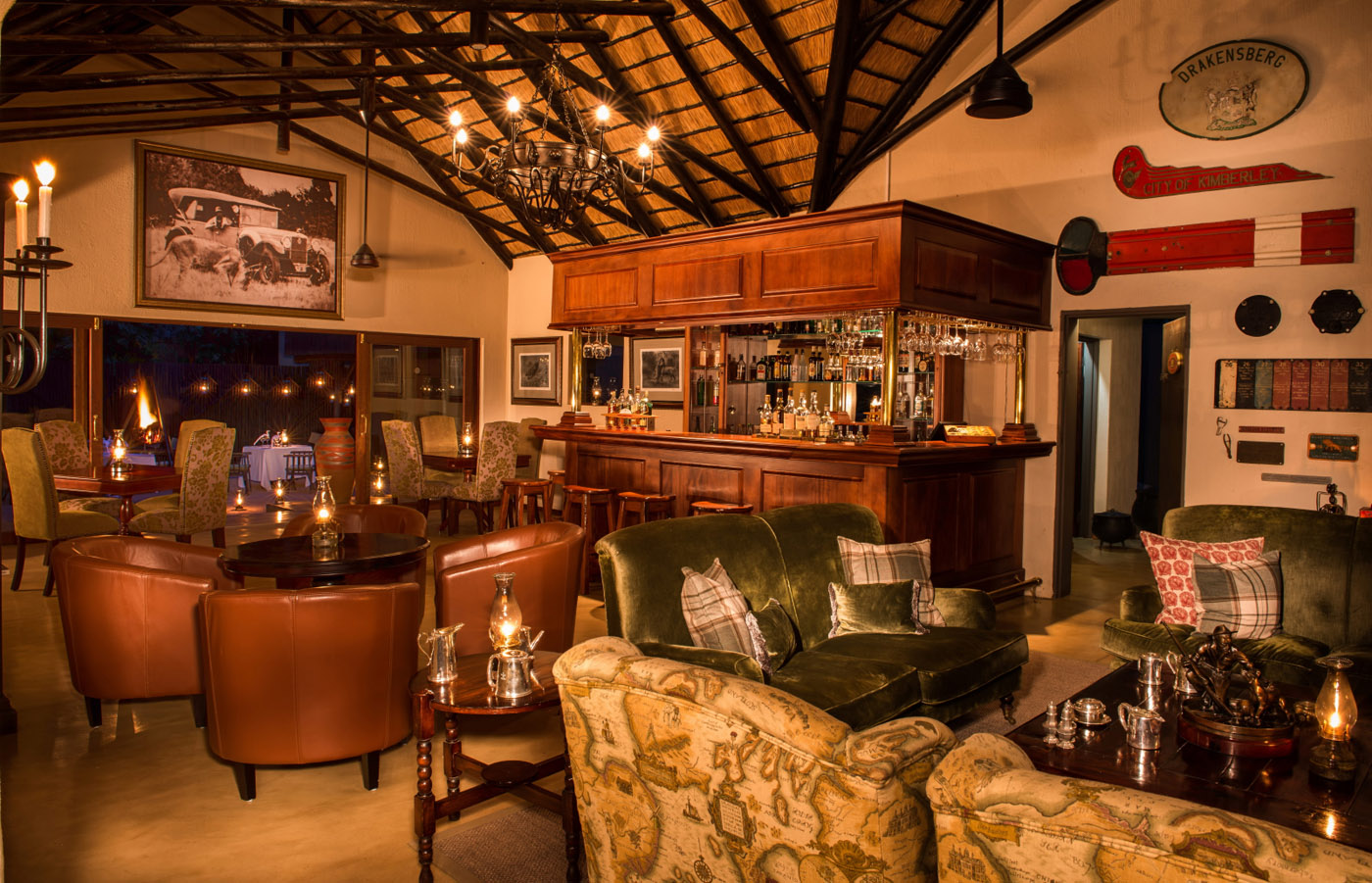
Celebrating that history, Selati’s reception looks something like an old-fashioned train station ticket booth. Original steam engine nameplates hang overhead, and signals and shunter’s lamps light you to your suite. Indeed, the whole camp is lit up after dark by oil lamps, candles and lanterns that evoke a feeling of having arrived by night at a station of yesteryear.
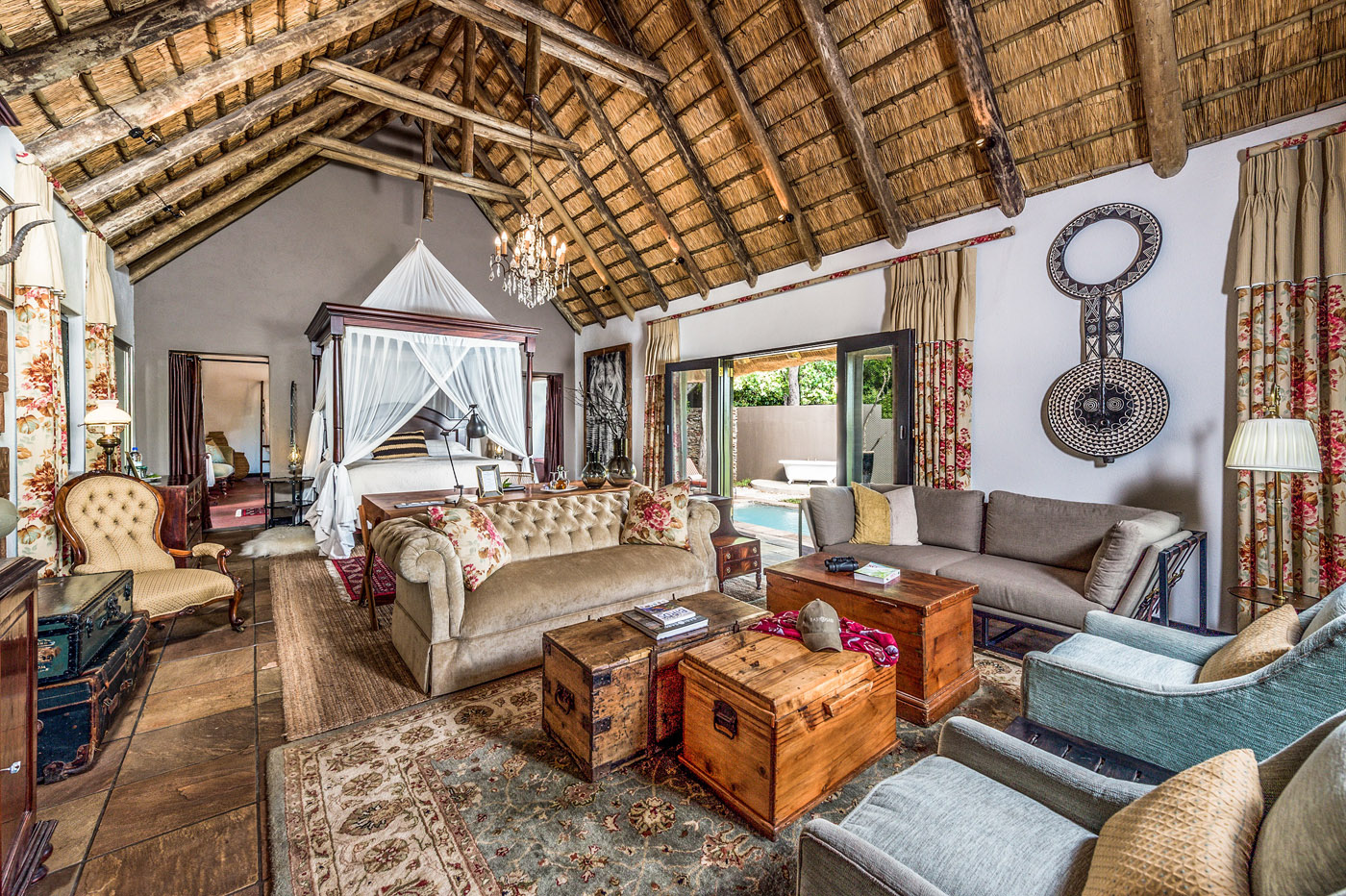
The high luxury is fused with other historical features that take you back to the early 19th century, and while the food is decidedly contemporary, it is served in traditional “boma” style, beneath the night sky, or in a farmhouse kitchen.
So is it possible to relive the past without feeling a hint of discomfort at the crimes of bygone eras? Selati shows that it is – with panache.
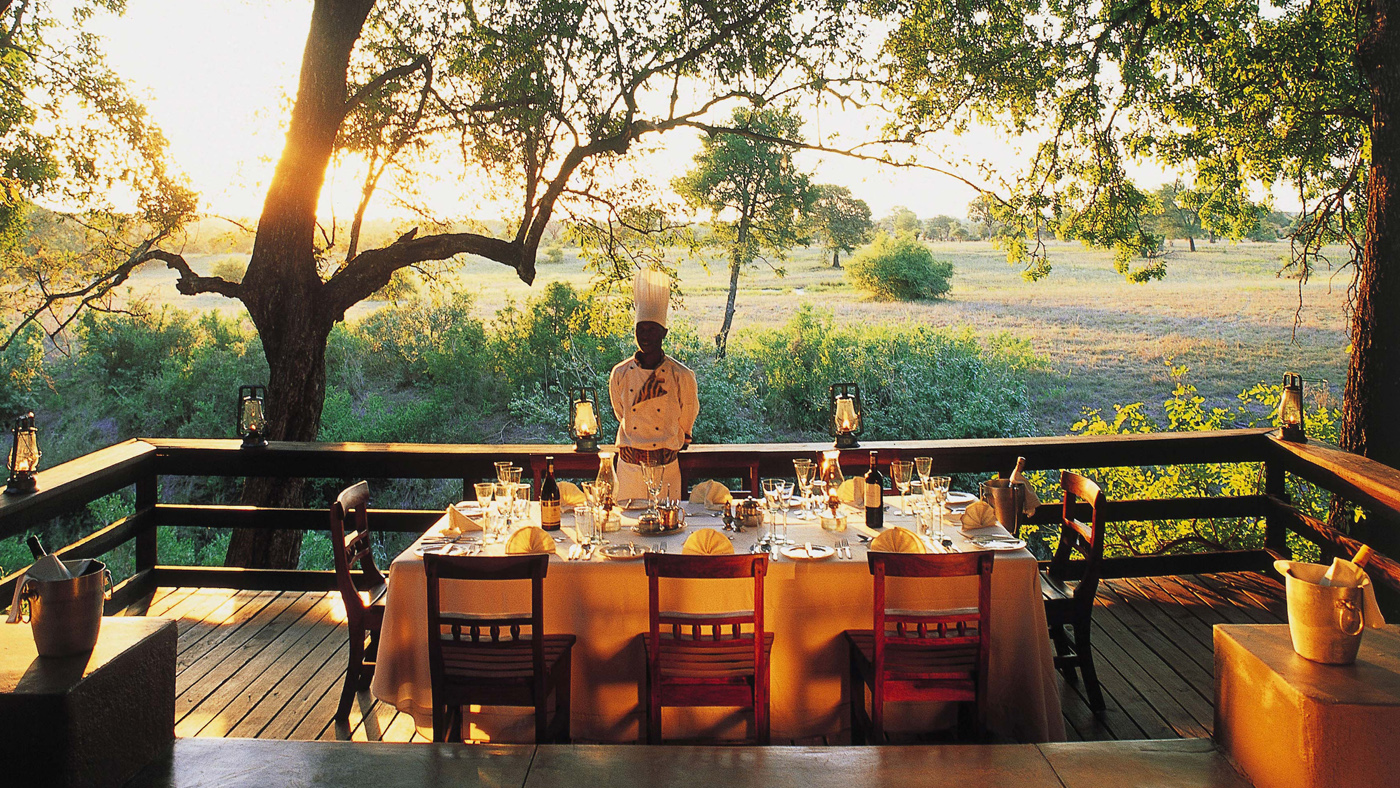
Today
Despite the country’s ongoing political turbulence, South Africa remains an optimistic place, in no small part due to the sunny disposition of many of its citizens. And no one seems more enthusiastic than South Africa’s rangers, trackers and conservationists, who – despite facing unique conservation issues – seem confident that tourism can help to solve not only their wildlife problems, but also some of their country’s wider issues.
A case in point is the team that accompanied us throughout our stay at Sabi Sabi, acting as hosts, guides and, well, friends. Our ranger Conrad Zeelie and tracker Richard Sibuyi are a source of fascinating insights into the wonders of the bush, sharing details of their upbringings and lives, recommending wines and onward travels, and talking to us about what it is like to live in today’s South Africa.
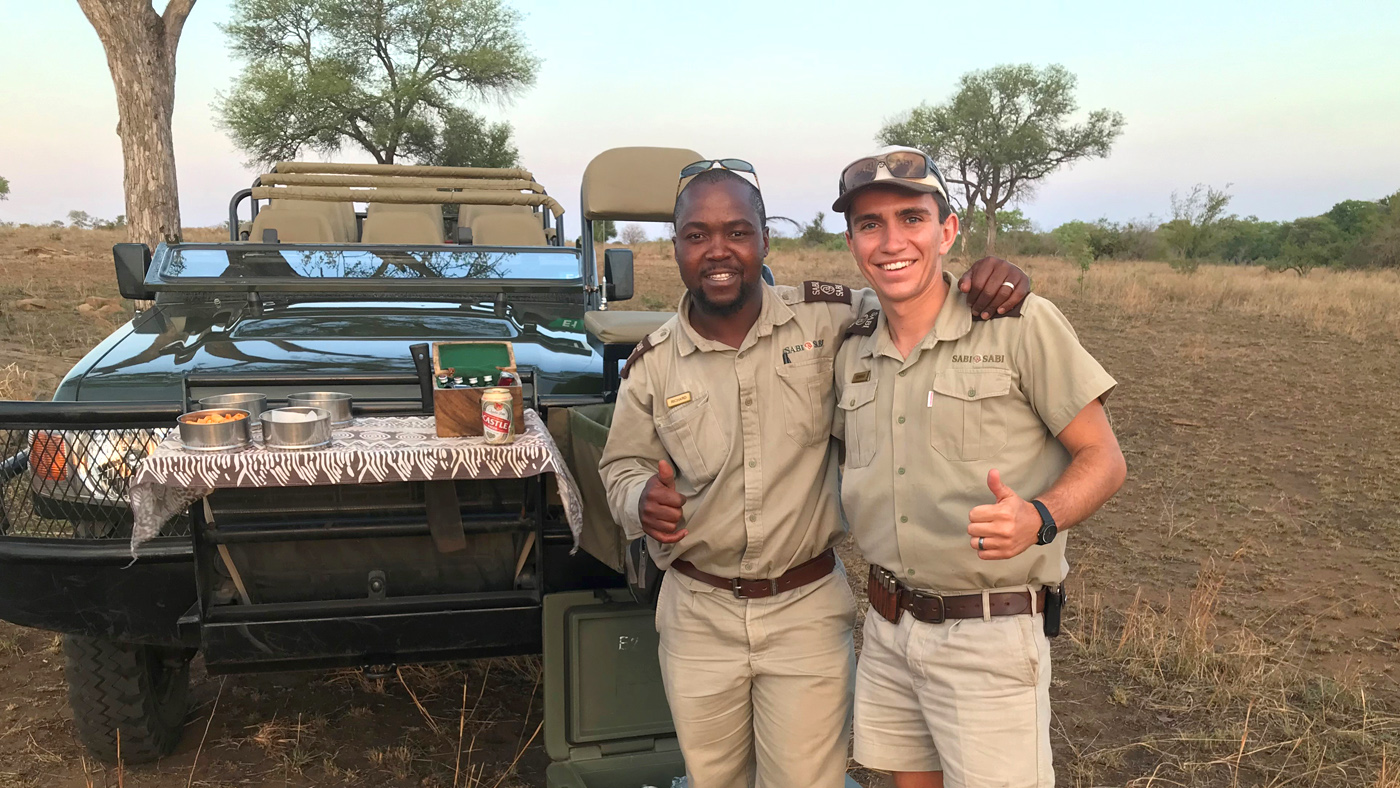
Richard and Conrad
Sabi Sabi captures something of contemporary South Africa perfectly with two of its other lodges – Bush Lodge and Little Bush Camp. We stayed in the more boutique of the two options, Little Bush, but both feature modern design, gentle opulence and simple touches that turn a pleasant stay into an exceptional one.
Arriving at the camp, we were greeted with welcome drinks, and ushered to a corner of the room where an open fireplace took edge off the morning chill. The airy reception area, with a towering thatched roof – part hut, part cathedral – doubles as its bar, restaurant and launch pad for game drives out into the bush.
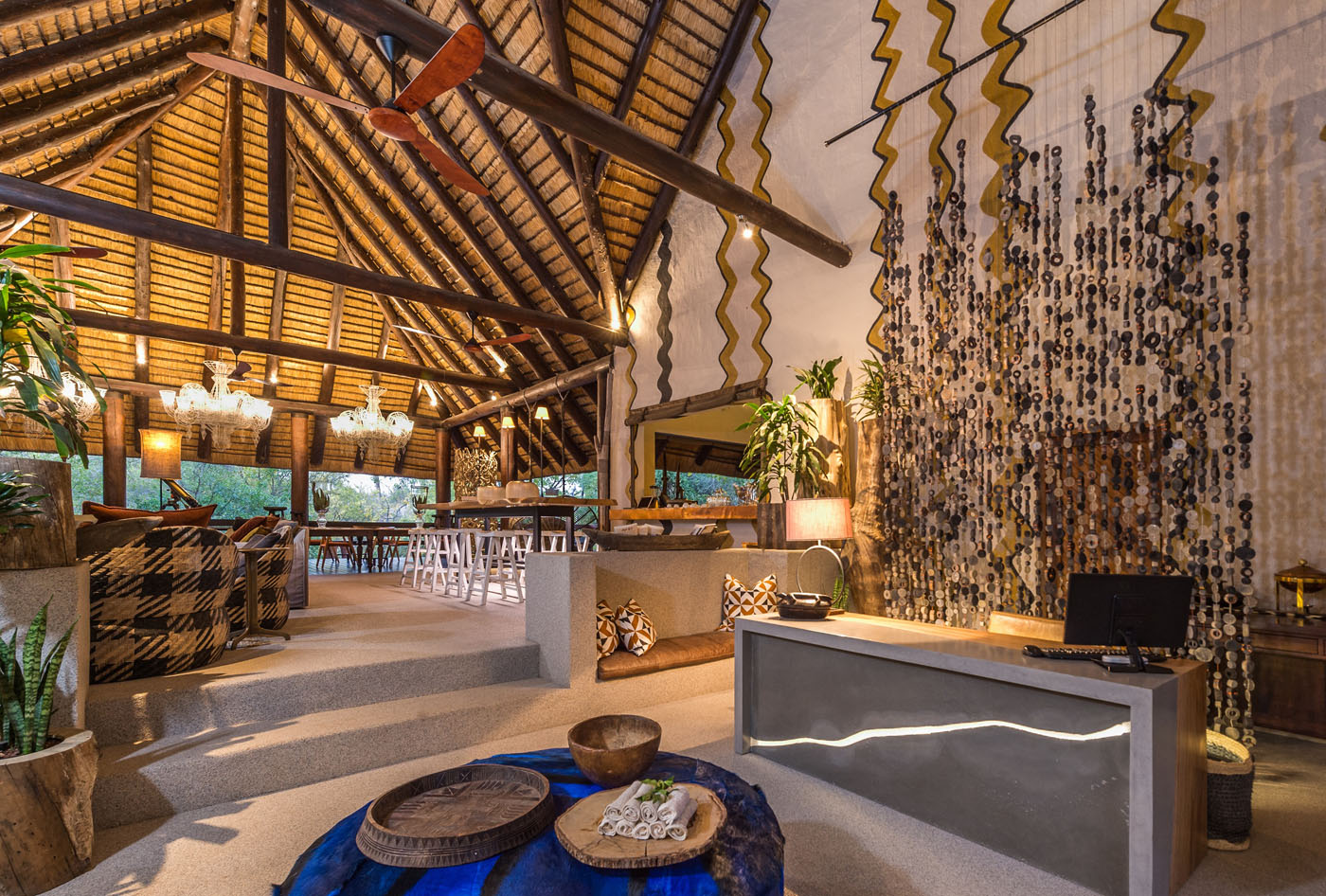
Little Bush Camp is Sabi Sabi’s most intimate, with just six luxury suites, each of which features its own private viewing deck and heated spa bath from which you can look out to a riverbed below. From the comfort of your balcony, you will often see impala, steenbok or other delicate antelopes foraging in the foliage. Suites are decorated in contemporary African design, with slow-turning fans, full bathroom ensuite, and indoor and outdoor showers. The four-poster beds are draped with mosquito nets, which as well as serving an obvious purpose lend another layer of romance to the perfectly appointed rooms.
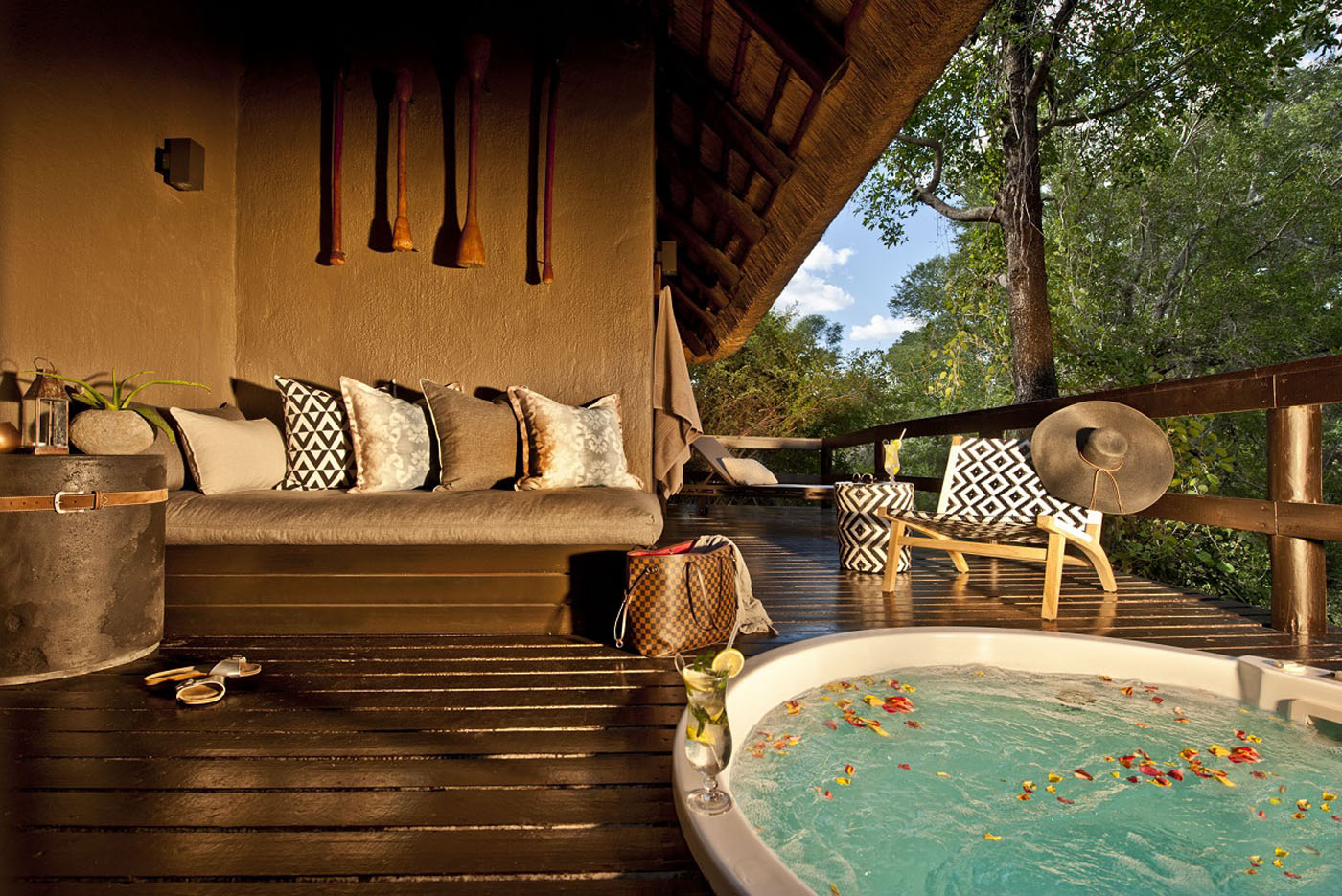
The camp swiftly feels like home, and fellow guests like family, with dinners held on a long communal table where you get to know your fellow diners alongside your rangers. Each course is announced by the head chefs Gift Khoza and Shadrack Sishlangu, whose home-cooked meals are created according to the philosophy that they are “cooking for friends”. If you particularly like any dish, all you need to do is ask and they will bring you more.
During one of our game drives, we drop in at Bush Lodge, the largest of the properties at Sabi Sabi. On arrival, we are struck by the fact that despite its large scale, the lodge retains the intimacy of its smaller siblings.
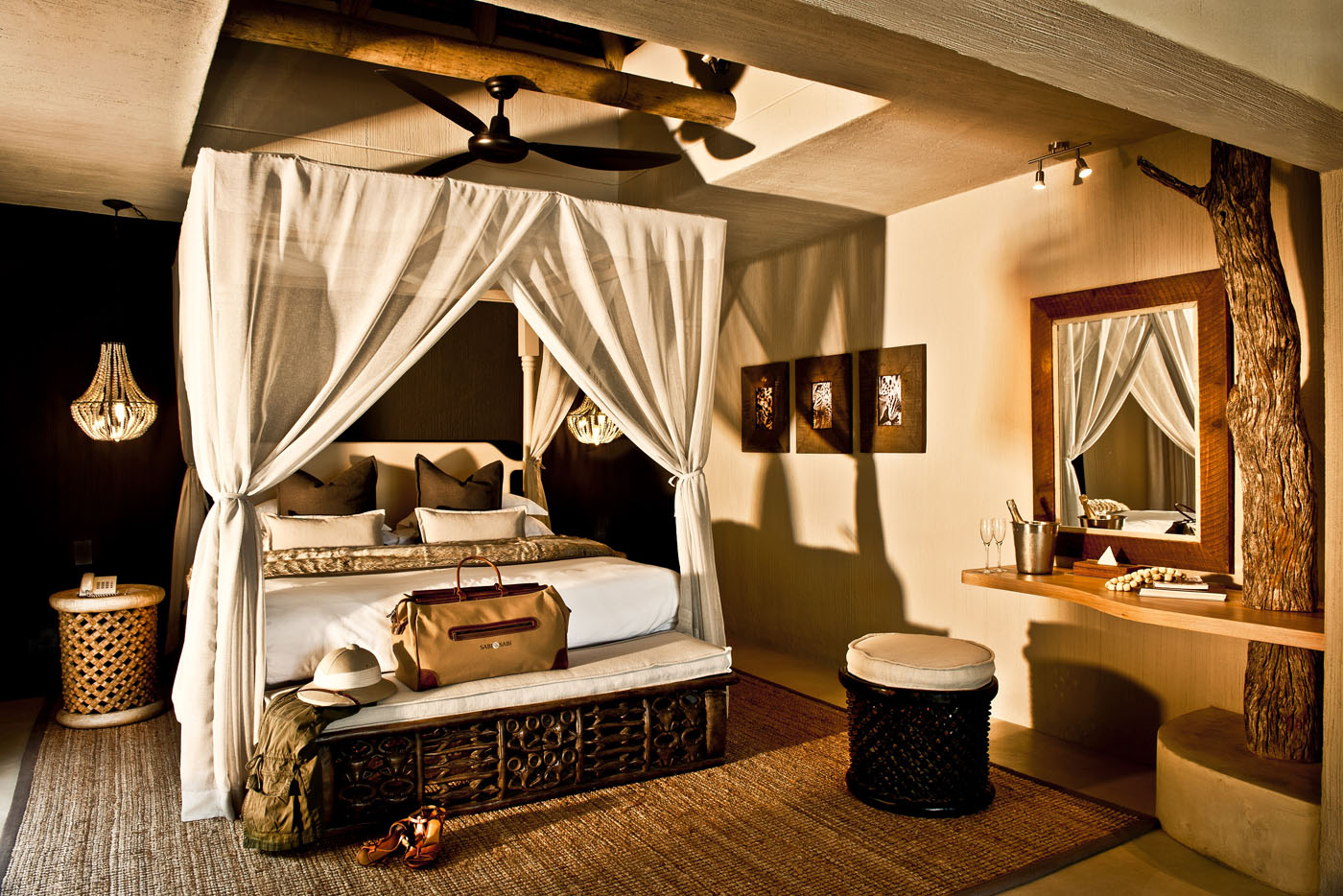
Bush Lodge is also the ideal place to stay if you are travelling with children. On site is the EleFun Centre, a kids’ entertainment and education facility, staffed by an inventive team who have enough ideas and activities to keep four- to 12-year-olds occupied for days if not weeks. The junior fun includes tracking, map-reading, arts and crafts, and traditional bushveld games. But the primary calling of the team is to develop childrens’ appreciation for nature.
Having developed our own, too, it was time to move on to the last stop on our itinerary – two nights at Earth Lodge.
Tomorrow
Earth Lodge represents the most forward-looking aspect of Sabi Sabi’s luxury safari vision. The entire lodge is dug into the ground, and accessed by a walkway that snakes downward into the earth, finally opening out into a broad reception space that looks out to a panoramic vista of uninterrupted savannah.
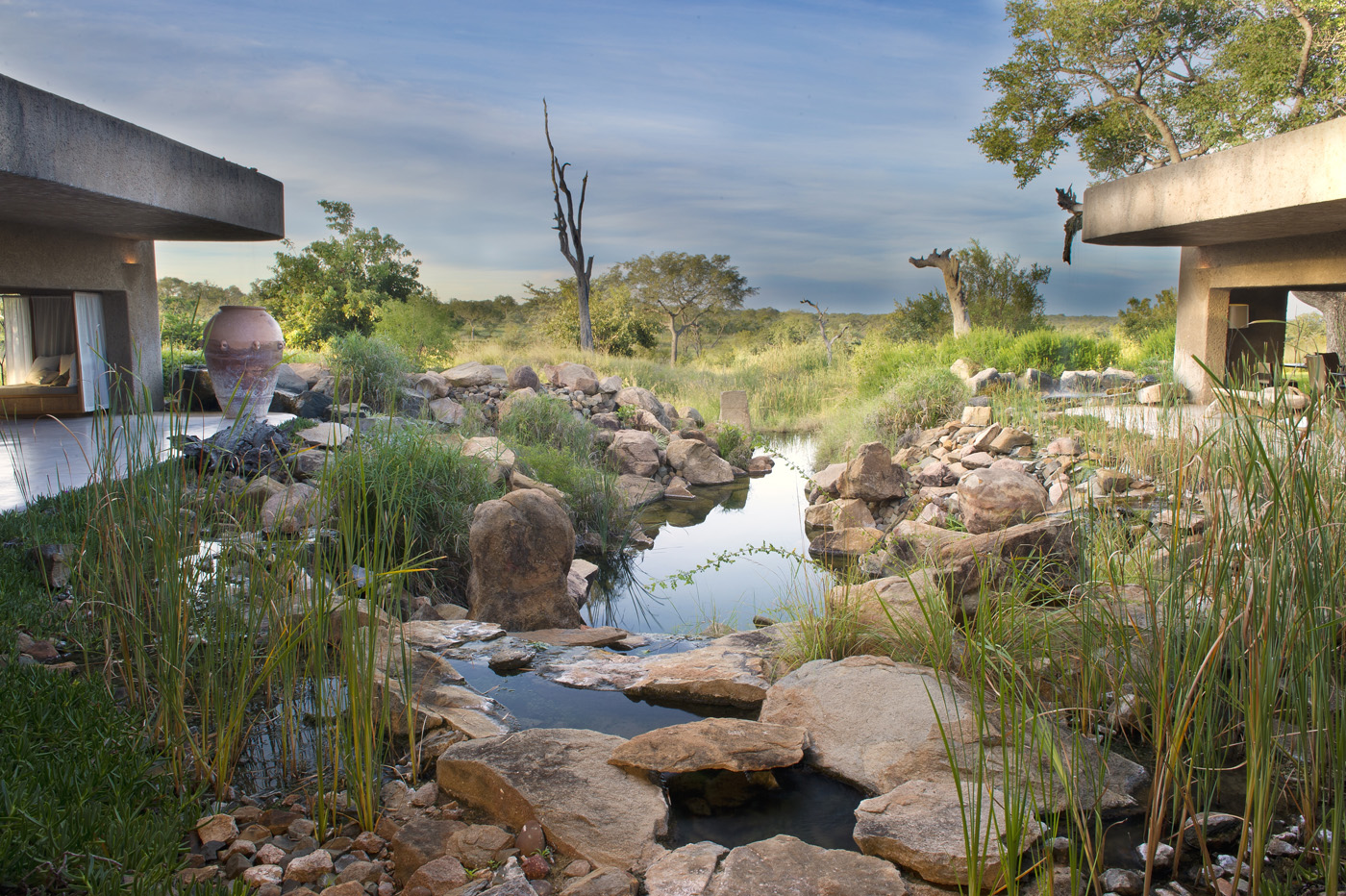
Photos simply do not do justice to its design. Constructed from a mixture of concrete, river sand and thatching grass, the walls curve at organic angles, or square off unexpectedly. The entire lodge is decorated with wooden sculptures by renowned South African artist Geoffrey Armstrong. His works line walls, sit atop beds, and act as de facto seats, adding to the sense that you are deep within the earth, surrounded by the root system of trees above.
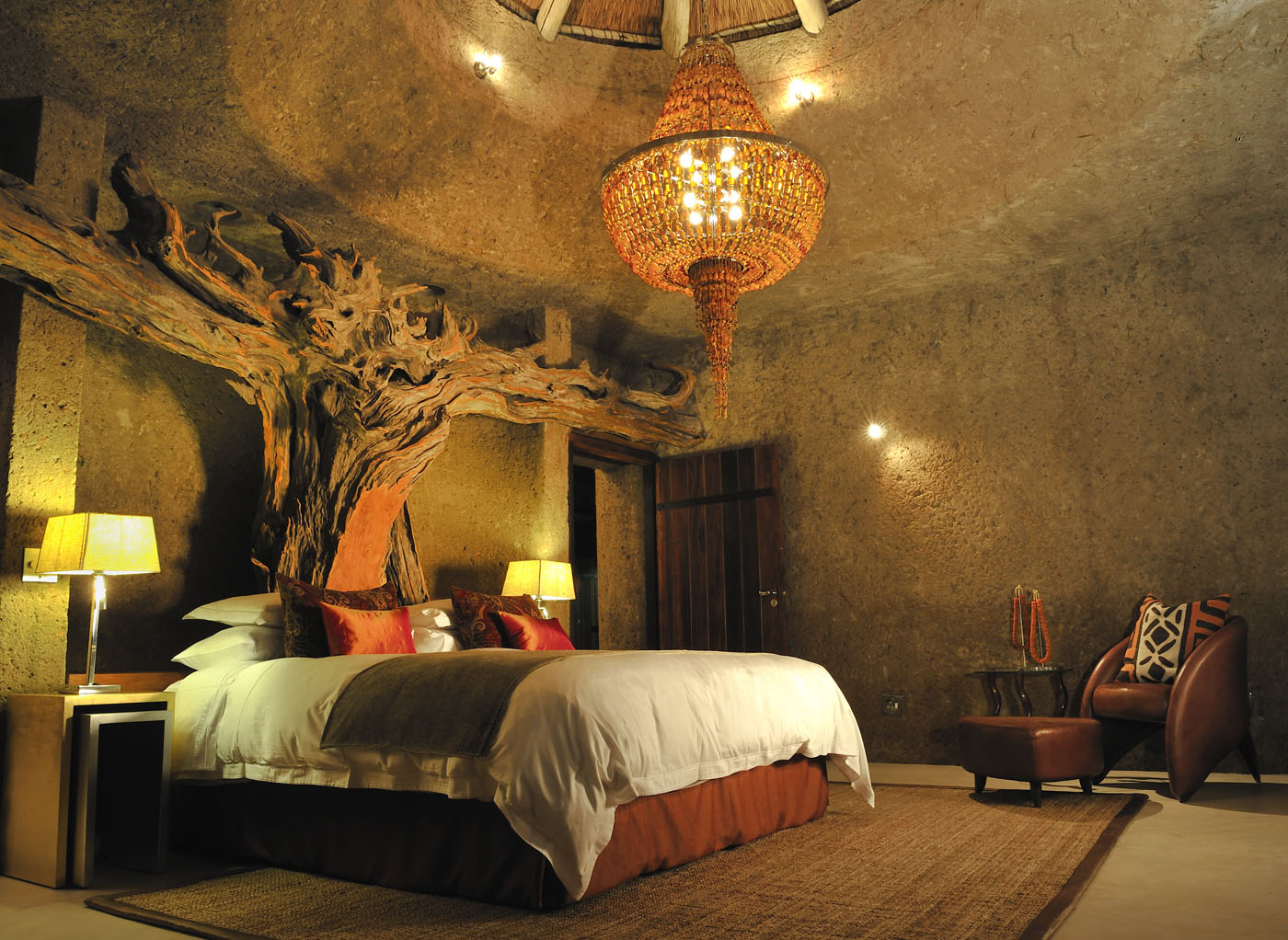
Each suite has its own plunge pool out front; perfect for cooling off in the heat of the day, and great too for attracting animals for close-up sightings. While we were preparing to go to breakfast one morning, a family of warthogs arrived to drink from our pool, lowering themselves onto their elbows with each sip.
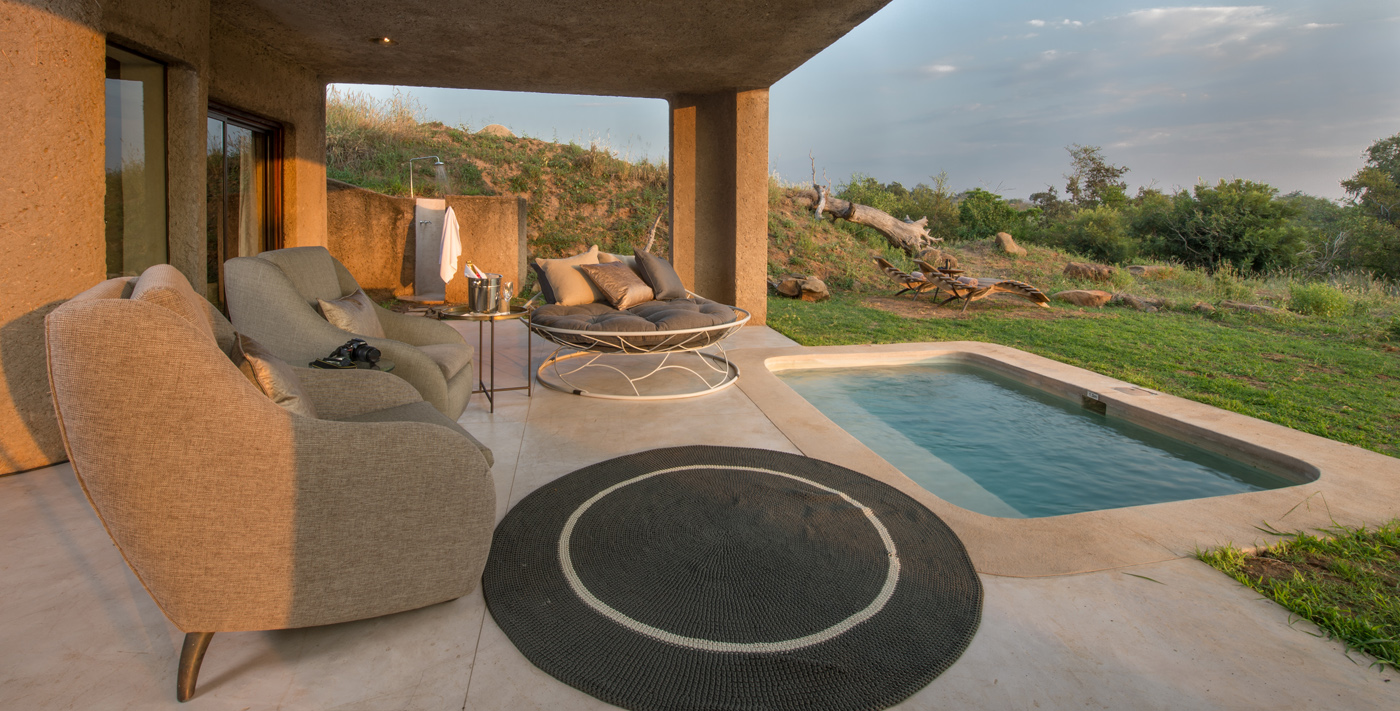
Earth Lodge is also home to an underground wine cellar with a collection of more than 6,000 bottles of rare wines. On our final night in Sabi Sabi, we were surprised by the staff with a dinner there alongside our small cohort of fellow travellers.
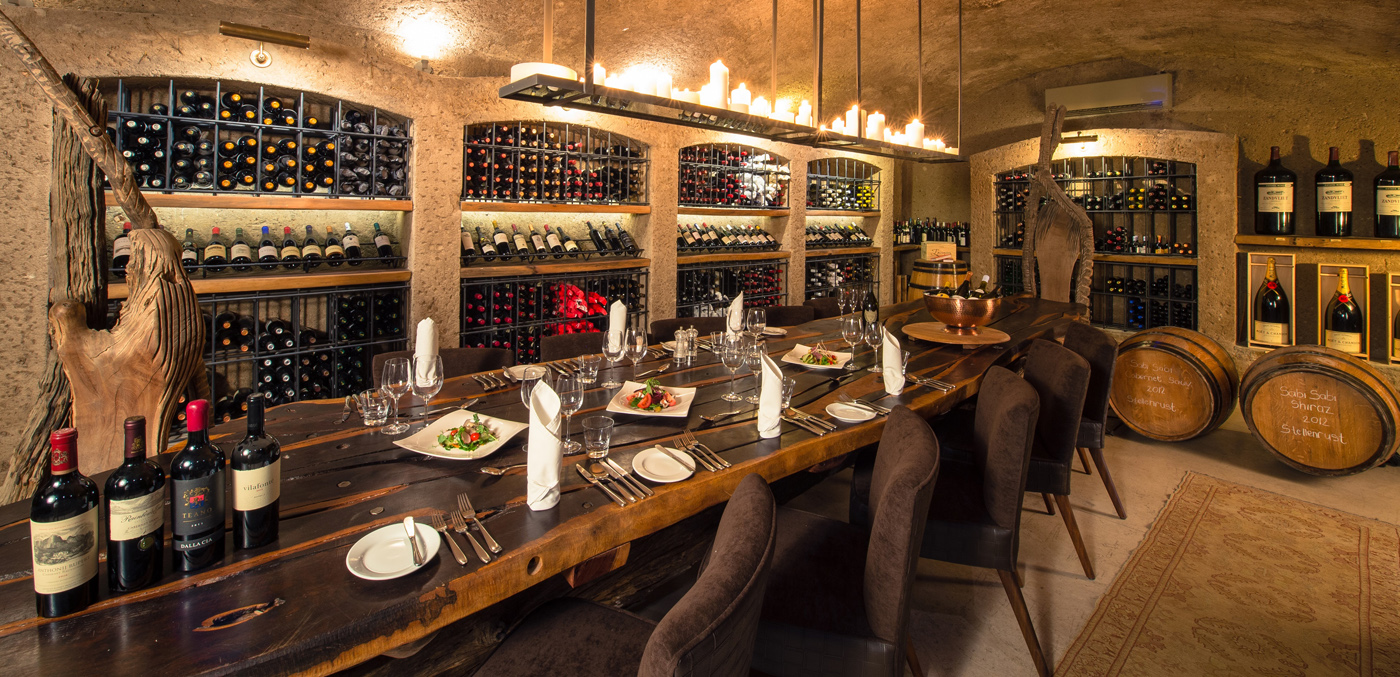
Our exceptional trip to Sabi Sabi ended with a glorious evening drinking local craft beer, earthy pinotage and, finally, nightcaps of sweet Amarula cream liqueur at the bar, before one by one, our party peeled off to bed.
At Sabi Sabi, the past is continuous, the present unconditional and the future perfect.
Wexas Travel (0207 838 5892, wexas.com) is offering a seven-night trip to South Africa from £5,785 per person, based on two sharing. This includes return flights from the UK to Cape Town on South African Airways; domestic return flights from Cape Town to Skukuza, and from Skukuza to Johannesburg; private airport transfers in Cape Town; 3 nights’ accommodation at Queen Victoria Hotel in Cape Town, on a B&B basis; 4 nights’ accommodation at Sabi Sabi Earth Lodge, on a full-board basis; and twice-daily shared game drives. A similar package staying at Bush Lodge starts from £4,225 per person.
Visit sabisabi.com for more information on Sabi Sabi.
Arion McNicoll is a freelance writer at The Week Digital and was previously the UK website’s editor. He has also held senior editorial roles at CNN, The Times and The Sunday Times. Along with his writing work, he co-hosts “Today in History with The Retrospectors”, Rethink Audio’s flagship daily podcast, and is a regular panellist (and occasional stand-in host) on “The Week Unwrapped”. He is also a judge for The Publisher Podcast Awards.
-
 What is the endgame in the DHS shutdown?
What is the endgame in the DHS shutdown?Today’s Big Question Democrats want to rein in ICE’s immigration crackdown
-
 ‘Poor time management isn’t just an inconvenience’
‘Poor time management isn’t just an inconvenience’Instant Opinion Opinion, comment and editorials of the day
-
 Bad Bunny’s Super Bowl: A win for unity
Bad Bunny’s Super Bowl: A win for unityFeature The global superstar's halftime show was a celebration for everyone to enjoy
-
 Hotel Sacher Wien: Vienna’s grandest hotel is fit for royalty
Hotel Sacher Wien: Vienna’s grandest hotel is fit for royaltyThe Week Recommends The five-star birthplace of the famous Sachertorte chocolate cake is celebrating its 150th anniversary
-
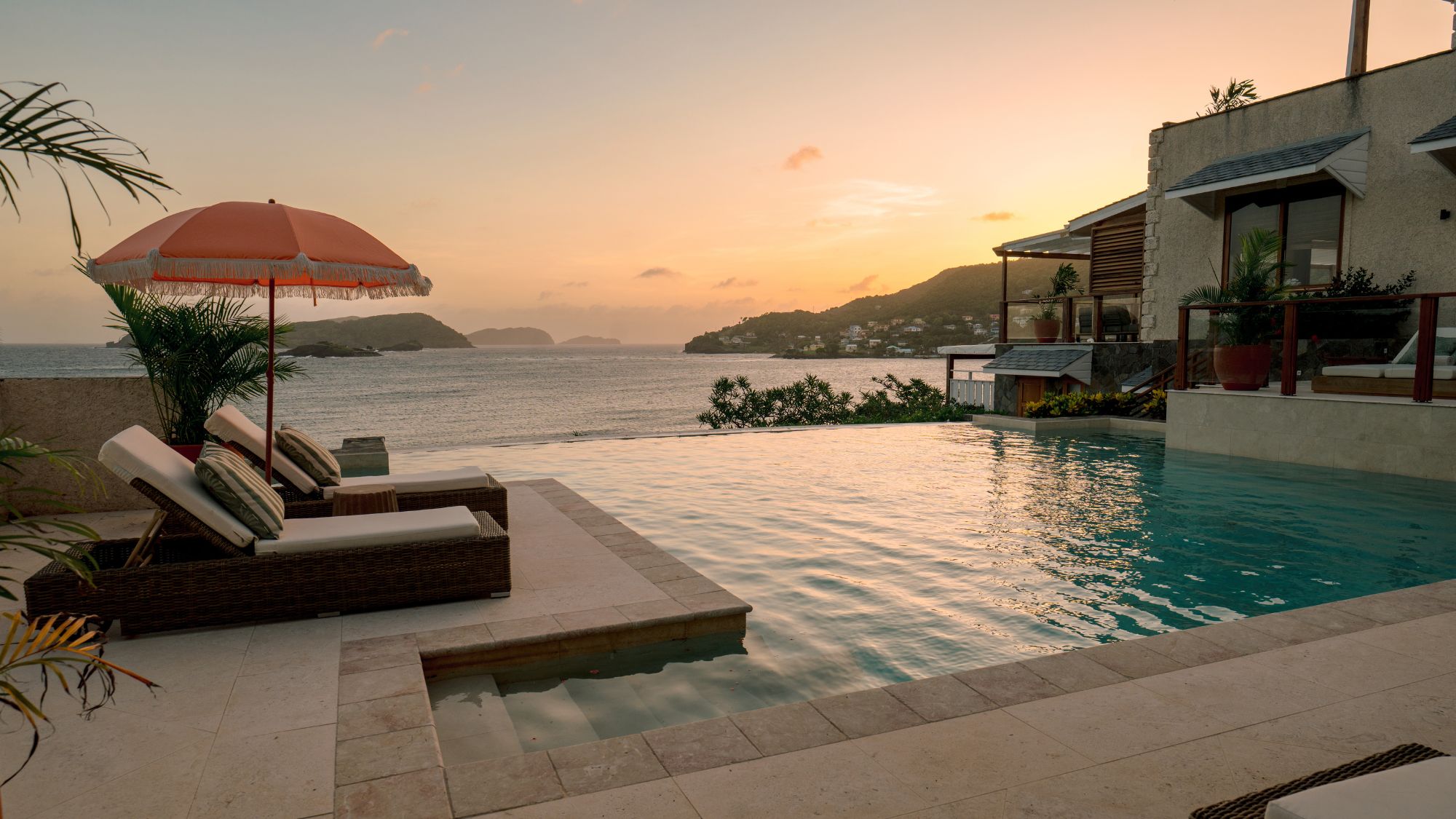 Rock Villa, Bequia: a hidden villa on an island epitomising Caribbean bliss
Rock Villa, Bequia: a hidden villa on an island epitomising Caribbean blissThe Week Recommends This gorgeous property is the perfect setting to do absolutely nothing – and that’s the best part
-
 Villa Treville Positano: a glamorous sanctuary on the Amalfi Coast
Villa Treville Positano: a glamorous sanctuary on the Amalfi CoastThe Week Recommends Franco Zeffirelli’s former private estate is now one of Italy’s most exclusive hotels
-
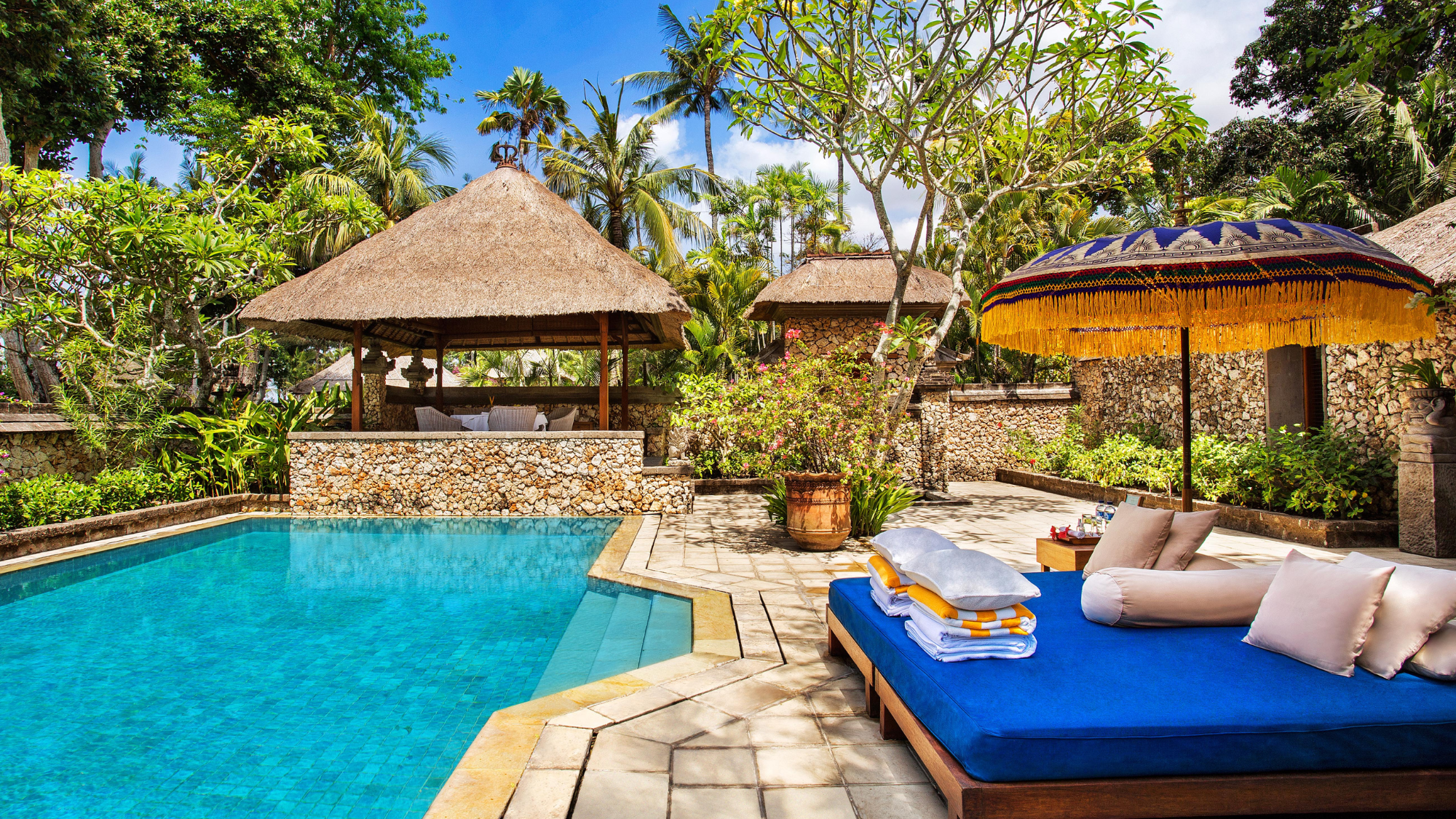 The Oberoi Beach Resort, Bali: a calm retreat in the heart of Seminyak
The Oberoi Beach Resort, Bali: a calm retreat in the heart of SeminyakThe Week Recommends Tradition meets modernity at this serene beachfront resort
-
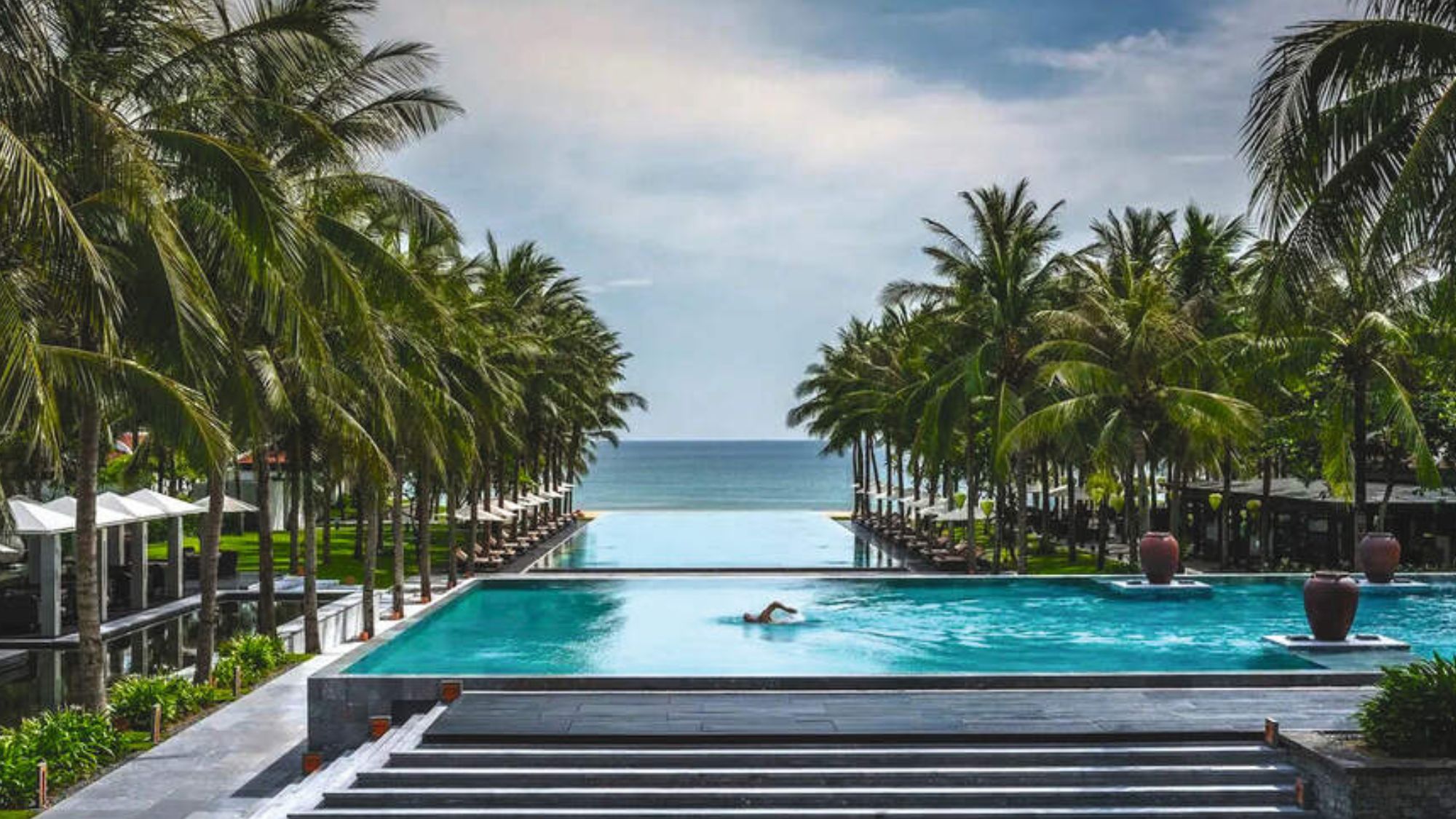 Six sensational hotels to discover in 2026
Six sensational hotels to discover in 2026The Week Recommends From a rainforest lodge to a fashionable address in Manhattan – here are six hotels that travel journalists recommend for this year
-
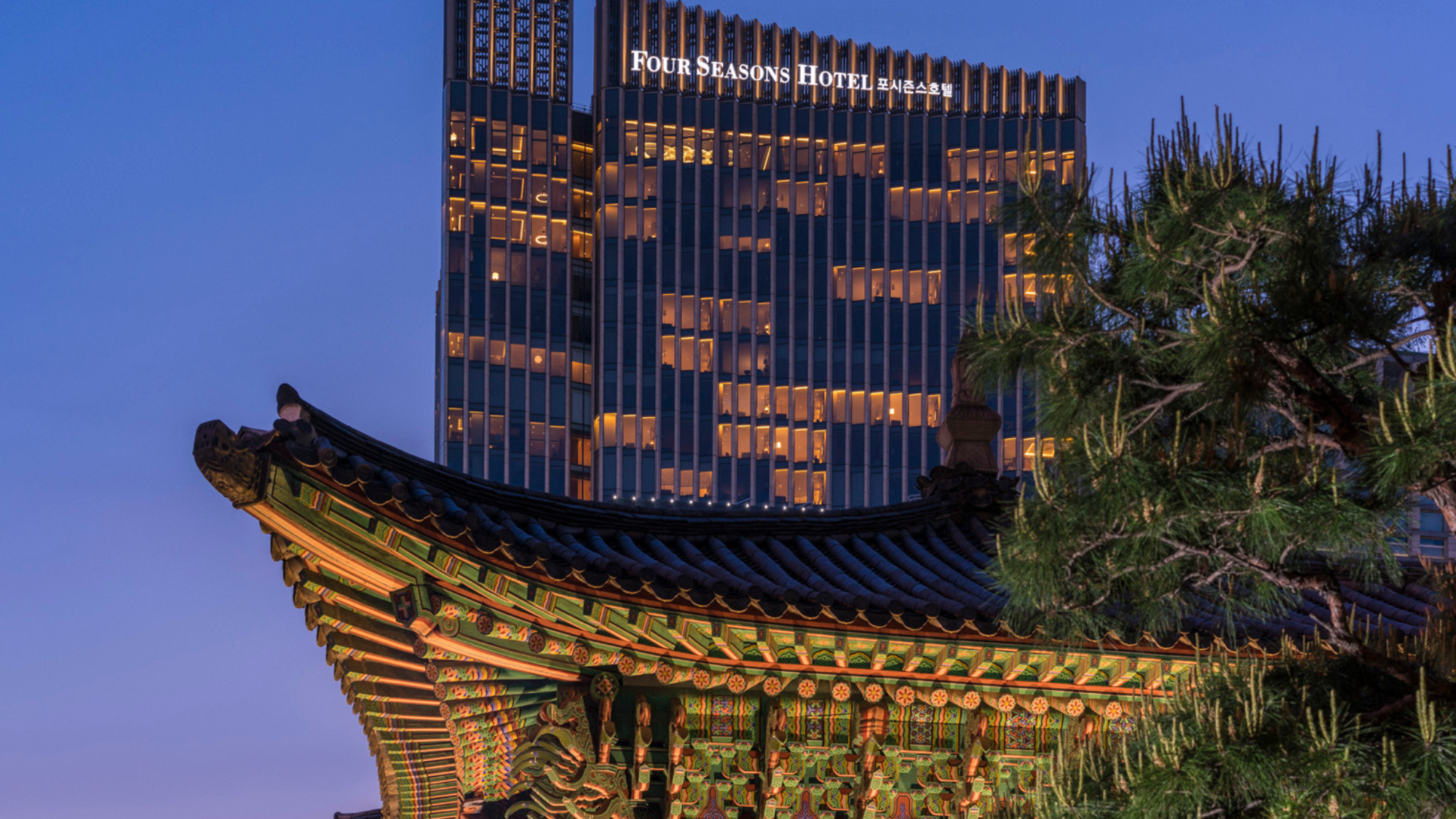 Four Seasons Seoul: a fascinating blend of old and new in South Korea
Four Seasons Seoul: a fascinating blend of old and new in South KoreaThe Week Recommends Located right in the heart of the action, this classy hotel is the perfect base to explore the capital
-
 Upper House Hong Kong: a serene sanctuary in the bustle of the city
Upper House Hong Kong: a serene sanctuary in the bustle of the cityThe Week Recommends Panoramic harbour views and super-stylish interiors elevate this luxury hotel to another level
-
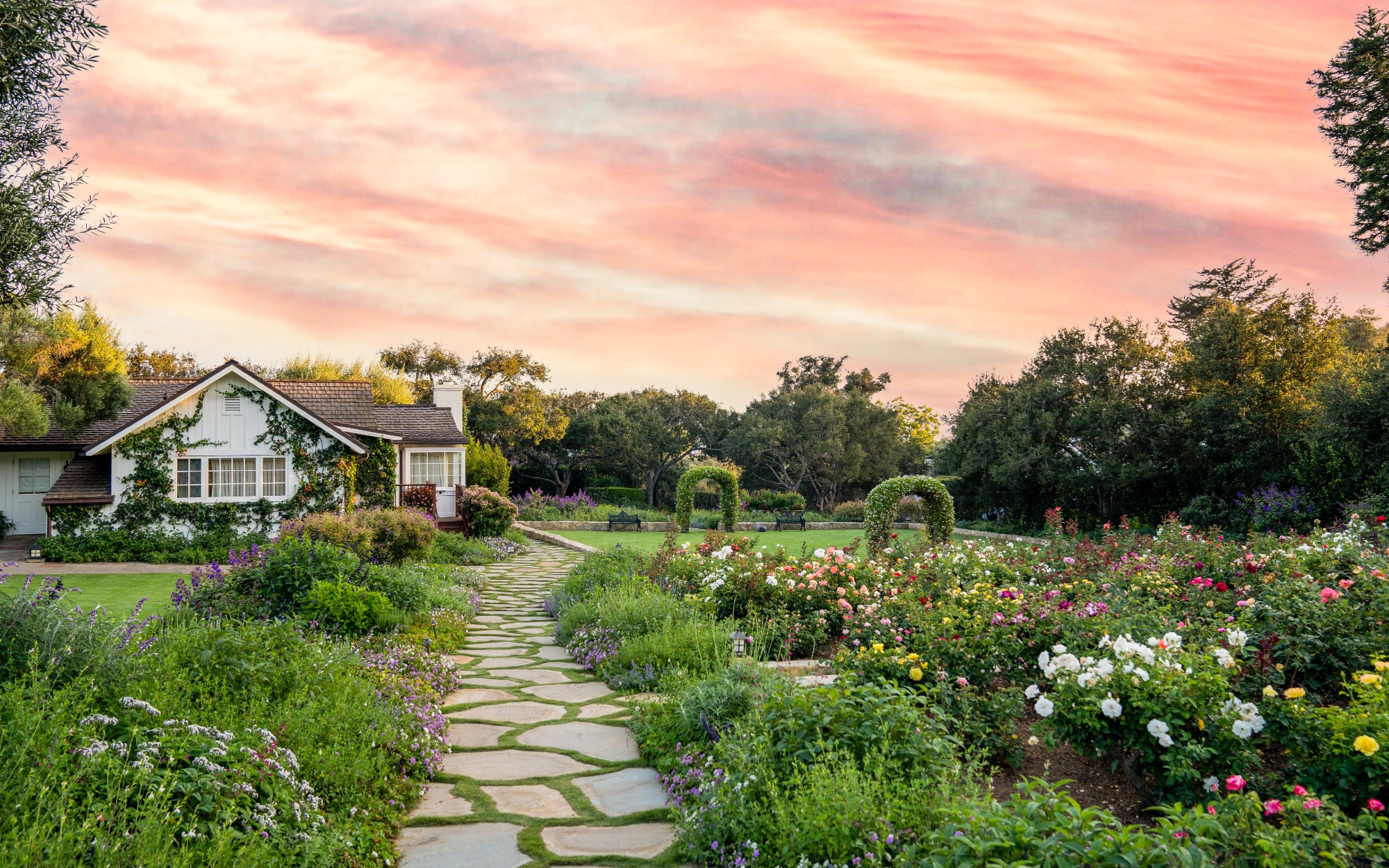 Step into a fairy tale at San Ysidro Ranch
Step into a fairy tale at San Ysidro RanchThe Week Recommends This historic Californian hideaway is pure magic